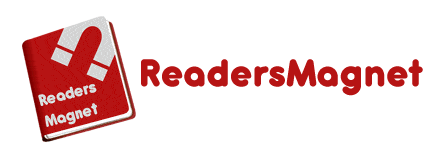An author website is more than a marketing tool. It’s an extension of the author and the book. A dynamic website offers comprehensive features that make it user-friendly and interesting. Every author must have a dynamic website. A dynamic website has a reliable platform and a good domain. It has clear information, highlights, right links, and amazing, relevant content. An author website, just like any other website, is well-maintained, updated, and interactive. Here is a list of what makes a truly dynamic website.
- A reliable CMS platform. Choosing your web content management system is one of the first things you must decide on. Your CMS controls almost all essential components of your website-HTML materials, images, videos, and other web materials. Thus, you need a reliable CMS Tool. Some of the best CMS platforms are WordPress and Joomla!
- The domain is under your name. Acquiring a domain under your name is a huge advantage for your website promotion. Remember your author name is your brand and is constantly attached to your every book and product. A site with yourname.com or your authorname.com is always the top choice for your domain.
- Pleasant Homepage. A presentable and professional homepage attracts more visitors. Keeping a simple user interface and the easy-to-navigate menu system is sure to entice viewers to explore your site further. Clear and well-organized homepage navigation is a major part of an effective author website.
- Catchy Bio / About Page. The purpose of your website is not only to introduce your book to the market but also to promote yourself as a serious writer. A 300-word professional biography or site description is enough to draw interest from visitors.
- Clear Contact Info. The contact page is pretty much the same with the About Page. Keep your Contact form as clear, concise and informative as possible. Make sure to include all your professional contact details as well as your agent or publicist’s contact information.
- One Book per Page. Your site’s main feature is your book. A good site has a single page for each book and a separate page if you have a book series. The Book page should contain an image of your book cover, book synopsis, book blurbs, a quote or a positive comment. A sales button that links to all major retailers is usually found at the bottom.
- Book Description. There are short and long book descriptions. Short descriptions are 25-100 words long. Long descriptions range from 200-300 words. These full descriptions are pretty much the same with Amazon book description.
- Links to Retailers. A comprehensive author website is never without links to online retailers where your book is commercially available. Amazon, Barnes&Noble, IndieBound, Apple, Google Play, and Kobo are the major retailers your site should link to.
- Social Media Links. Links to social media profiles are as important as retailer links. A decent writer’s website has social media buttons either in the footer or sidebar with badges that display your social media activity.
- Email sign-ups. Email sign-up is an effective way to build your book’s fan base. Organizing your email list is ensuring that these subscribers get the latest news release and updates. More importantly, your subscribers will hopefully forward these updates to their friends and colleagues thus increasing your online presence exponentially.
- Relevant New Blogs. Blogs are not just there for SEO purposes. Blogs should showcase your ideas to your audience. By writing quality and relevant blogs, you add credibility to yourself and to your brand. Blogs also help establish your reputation not only as an author but also as a serious writer.
- Social Proof/Testimonials. Social proof, testimonials, media coverage, positive comments, and reviews increase not only your credibility but also cement your reputation and authority. Most websites place quotes and testimonials on the sidebar or just above the social media buttons.
- A Customized Website. Keep your site interesting and alive. Your site is an extension to your book and your author brand. You can “decorate” your site a well-designed marketing kit, with photo galleries, your very own book trailer, quote of the day or even trivia on the side.
- Search functions and sidebar. The key word for these two is convenience. A good site offers many features but a great site offers convenience in navigating the good site. By having a well-placed search widget and a sidebar in your author website, you give your visitors a pleasant site experience. Convenience matters to all consumers.
- Call to Action Subscription. Your blogs, links, email sign-ups and almost all other elements in your dynamic website are irrelevant without a subscription call to action. Whatever it is, make sure you have a strong call to action that will make your visitors stay a bit longer or visit your website again.
- Constantly Updated Website. A truly dynamic website is constantly updated. Always bear in mind that your site is always a work in progress and the online world is all about innovations. Visitors are always looking for something new and something more convenient. Just make sure your author site stays relevant and interesting.
ReadersMagnet Dynamic Website is one of the marketing services we offer to help authors mount up a comprehensive online marketing campaign through a dynamic author website. Contact us at 1-800-805-0762 | 619-354-2643 or email info@beta.readersmagnet.com


As a busy author, I always fell flat in updating my website. Thank you for reminding me about its importance!
Same here! But fortunately, I’m working with ReadersMagnet now, and whenever my site has problems, they are always on top to catch them.